Wittenberg

Home | Hamburg | Lauenberg | Tangermünde | Berlin | Wittenberg | Torgau | Meissen | Dresden | Saxony | Prague
A settlement was first mentioned in 1180 as a small village founded by Flemish colonists under the rule of the House of Ascania. In 1260, it became the residence of the dukes of Saxe-Wittenberg, and in 1293 the settlement was granted a town charter. Wittenberg developed into an important trade centre during the following centuries, due to its location. When the Ascanians died out, Saxe-Wittenberg passed to the House of Wettin. The city became an important regional political and cultural centre at the end of the 15th century, when Frederick III "the Wise", Elector of Saxony, took up residence in Wittenberg. Several parts of the city were extended soon afterward: the second bridge over the Elbe was built from 1486 to 1490 and the castle church, the Schlosskirche, was built from 1496 to 1506. The palace was rebuilt the same time. In 1502, the University of Wittenberg was founded and gave a home to many important thinkers, among them Martin Luther (Professor of Theology from 1508) and Philipp Melanchthon (Professor of Greek from 1518). On October 31, 1517, Luther nailed his 95 theses against the selling of indulgences at the door of the All Saints', the Castle Church, marking the beginning of the Protestant Reformation. Luther came to the conclusions that the sinner is justified (declared righteous) by God through faith in the work and death of Jesus, not by works, such as buying indulgences or keeping of the Law. Sola Fide, or "Faith Alone", became the watchword of the Reformation.
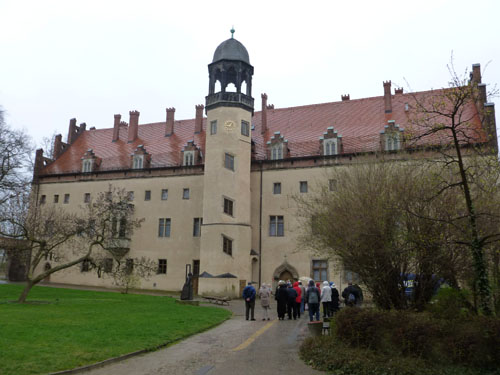
The Lutherhaus in Lutherstadt Wittenberg, begun in 1504 as part of the University of Wittenberg, was the home of Martin Luther for most of his adult life and a significant location in the history of the Protestant Reformation. Luther was living here when he wrote his 95 Theses.

Inside we saw a number of artfacts from his life, including the pulpit from which he preached. A significant part of the Reformation was the primary place of preaching in the church, rather than the Catholic Mass.
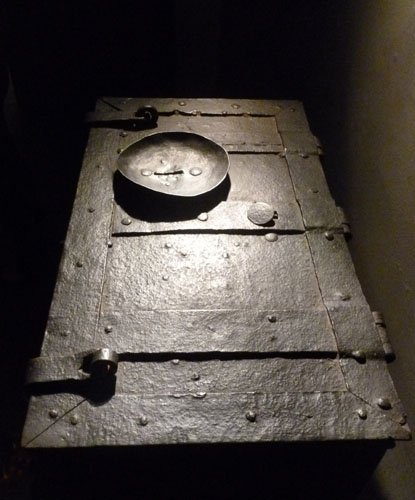
Luther was upset by the church's selling of indulgences to forgive sins. This is a trunk where money was stored when indulgences were sold.

In what became a lecture hall there is a painting by Cranch illustrating the ten commandments. You may recogmize the fifth commandment, Thou shalt not kill, in the right of the top row.
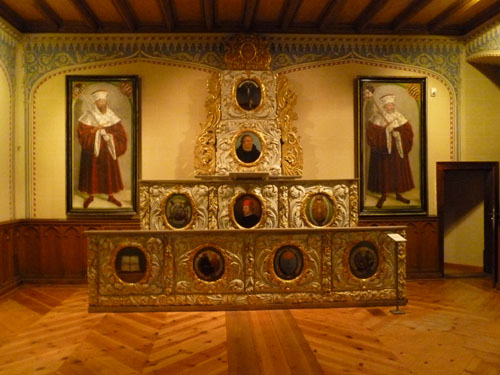
A lecture room in Lutherhaus.

A copy of the Bible Luther translated into German.

A hymnbook open to Eine Feste Burg, one of the Hymns Luther wrote.
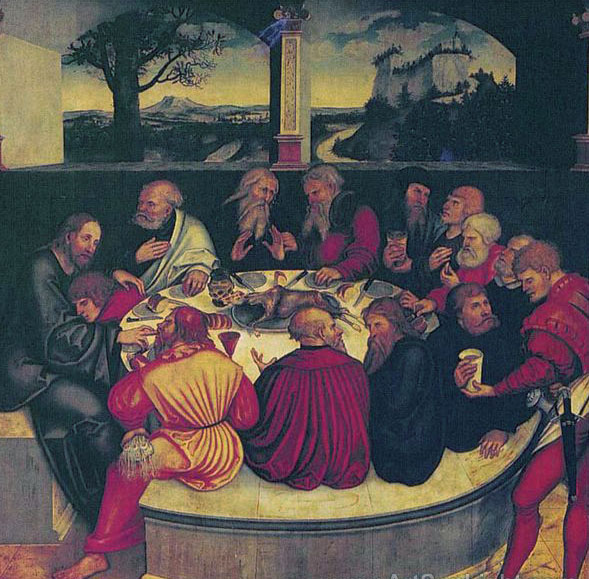
We then walked to the City Church, also known as St Mary's Church, where Luther had preached over 2000 sermons. Lucas Cranach the Elder, along with his son and workshop worked on a number of altarpieces of the Last Supper, among other subjects. In some such depictions Christ is shown with the traditional halo, but the apostles are represented as leading reformers, without halos. The altarpiece of the main church in St. Mary's Church has a traditional representation of the Last Supper in the main panel, except that the apostle having a drink poured is a portrait of Luther, and the server may be one of Cranach.
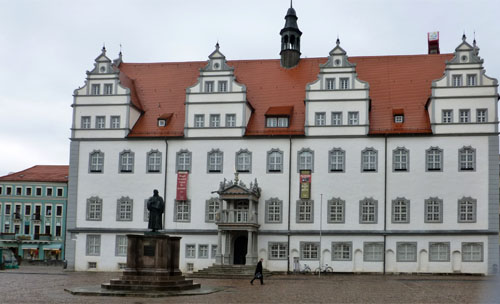
The town hall in the main square of Wittenberg, with the statue of Martin Luther.

A closeup of the statue shows Martin Luther with a Bible, illustrating the Reformation's stress on Scripture. (The Latin term is Sola Scriptura, or Scripture Alone.)
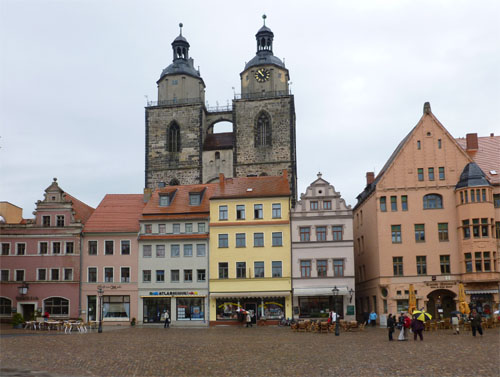
Another view of the main square with St. Mary's Church, also known as the Stadtsekirche, in the background.
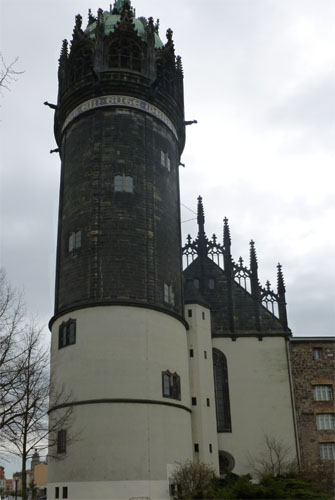
Our last stop in Wittenberg was at the Castle Church, where Martin Luther nailed his 95 theses to the door on October 31, the act that has been called the start of the Protestant Reformation.
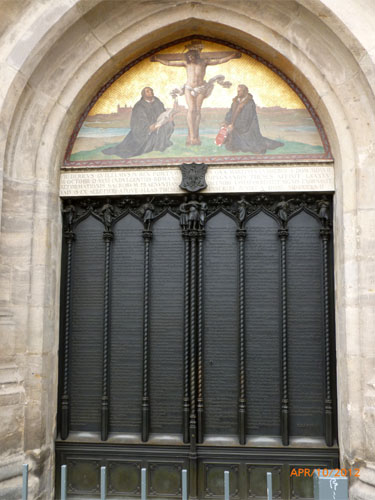
The door now contains a bronze copy of the 95 theses. Some sample statements of his theses are:
1.Our Lord and Master Jesus Christ in saying: "Repent ye" [lit.: Do penance, poenitentiam agite], etc., intended that the whole life of believers should be penitence [poenitentiam]
5. The Pope has neither the will nor the power to remit any penalties, except those which he has imposed by his own authority, or by that of the canons.
A summary of Luther's life and works can be be found here, part of a more general site on the Reformation from a class taught by Don.
Next we sail to Torgau.